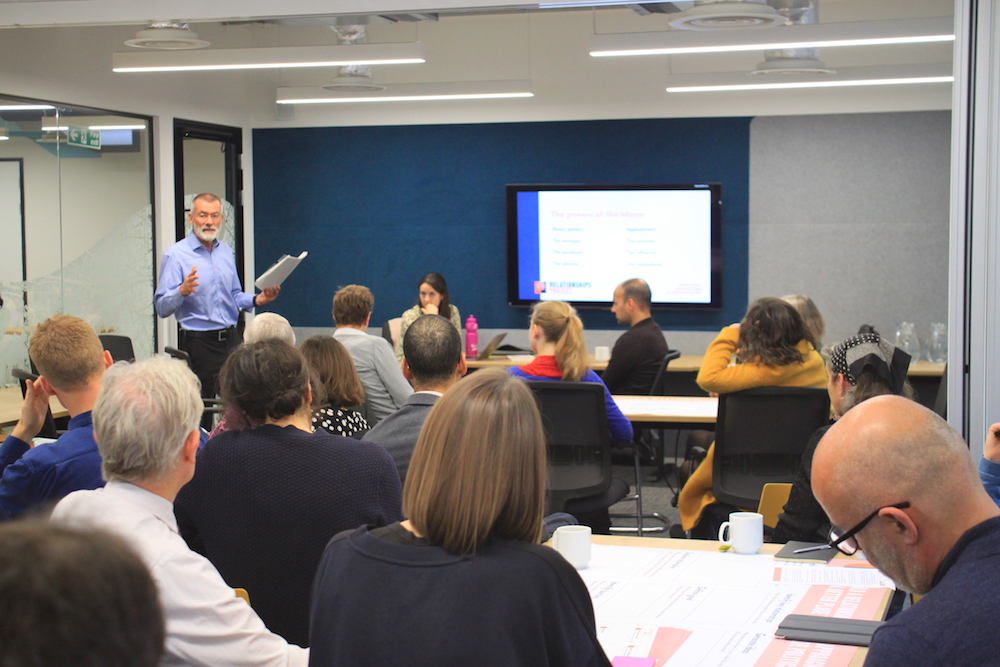
In brief
In this blog, David shares his reflections on an thoughtful, energetic event in which 25 Londoners reimagined the city from a more relationship-centred perspective.

“How would your place change if relationships were a central operating principle?”
You define “your place”. It might be the neighbourhood you live in, the class you teach, the business you run. Whatever, wherever, every place matters.
For twenty five Londoners last Friday, it was the city where we live and work. “How” we asked ourselves, “can we build a better London by building better relationships?” Together we imagined radical, practical, relationship-centred ideas to improve our city.
We are now pulling together the results to share with the leading mayoral candidates in advance of the mayoral campaign next year. The London mayor is a manager, a purchaser and a planner. These direct levers can all be usefully applied in reshaping the capital but they are not the only powers attached to the office. The Mayor is also a convenor, an influencer and owner of the biggest megaphone in London. Whether Sadiq Khan starts a second term next May or a new candidate picks up the baton there will be a fresh start. The time is right for new ideas.
We will be publishing much of the detail from our day here in due course but here’s my three headline observations:
1. It was fun and co-creation works!
I guess you don’t sign up for a day like this if you’re not eager to participate but I was still hugely impressed by the vitality and quality of the conversation. There will be no spoilers here about the ideas that began to emerge (wait for the report!) but I was excited not only by the caliber of the thinking but also by the vindication of the process. The work of the Relationships Project is rooted in the belief that people who experience a “place” understand it best. Our task is to unleash that capability for designing or redesigning from a relationship centred perspective. I don’t think anybody who spent the day with us last Friday will have gone home with any doubts about the potential of the process.
2. There is a lot to learn from
I learnt, for example, about Grandmentors – an intergenerational mentoring programme matching care leavers with older mentors, about the Tottenham Mixers at Downshill Cafe encouraging new and old residents to share a coffee and get to know one another, about OWCH – the Co-housing scheme where a group of women over fifty have, as an alternative to living alone, created their own community in a new, purpose-built block of flats in North London, and about much, much more.
The environmentalist David Fleming wrote that “large scale problems don’t require large scale solutions. They require small scale solutions within a large scale framework.”
Some of these ideas could be expanded, some could be replicated elsewhere in London, all would be a prominent part of the mix in a city where the mayor understands that strong relationships are not just a “nice to have” but are, when properly considered in the “large scale framework”, fundamental to achieving everything else that a good mayor wants.
3. There are some promising starting points
Some of the conceptual models which we have been distilling from our case studies were particularly helpful in imagining a different kind of city. We thought particularly about what makes a good relationship. We thought particularly about what makes a good relationship and about what helps a place to become relationship-centred.
We will be reflecting the learning from the London day in our next iteration of these models.
The event will be followed by the publication of a report in Mid February. We will also be adapting and adopting the format of this event in other contexts. If you would like to know more about any aspect of this work, please do get in touch.
